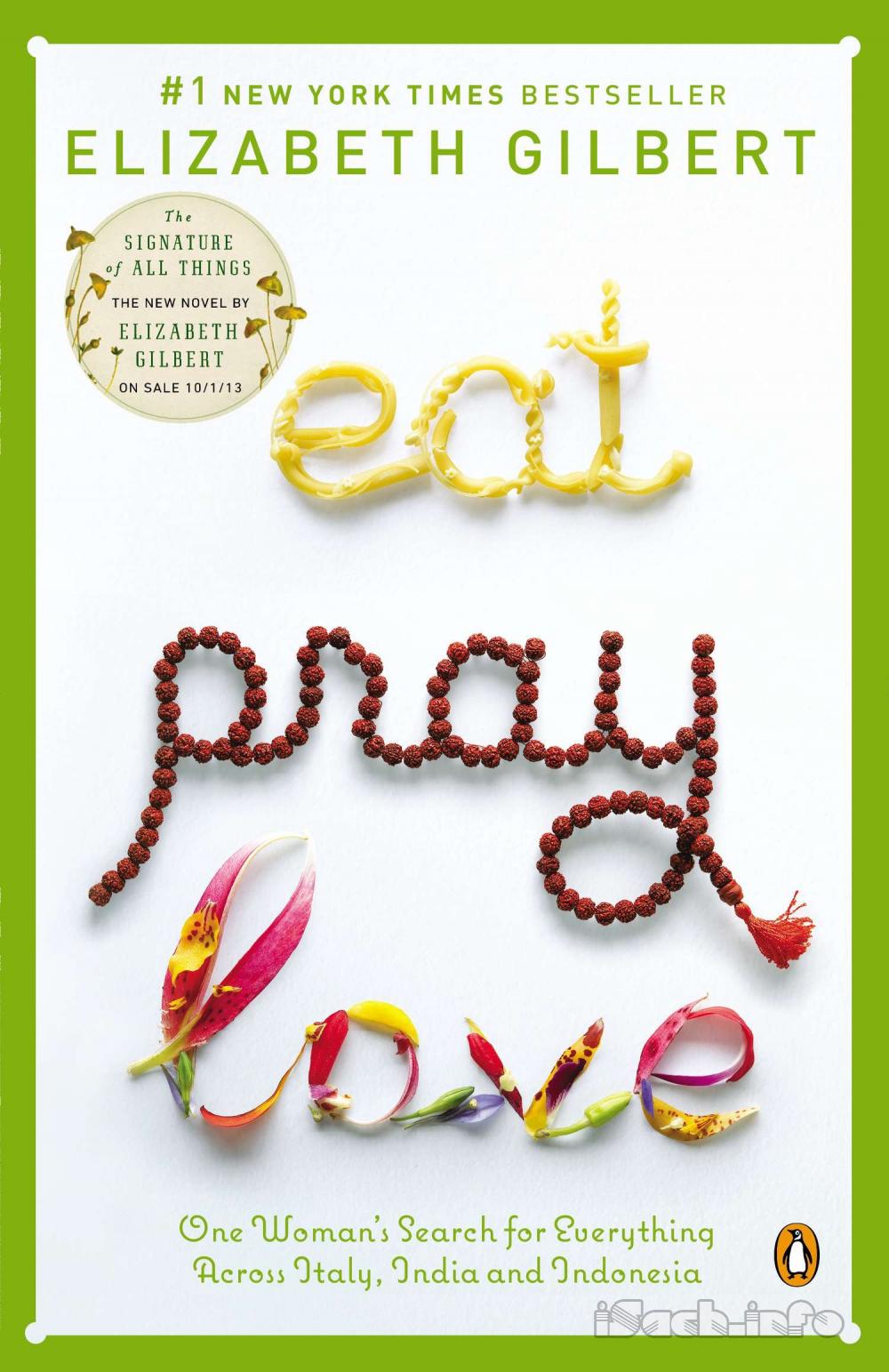Chapter 77
I
n the morning, Mario helps me buy a bicycle. Like a proper almost-Italian, he says, “I know a guy,” and he takes me to his cousin’s shop, where I get a nice mountain bike, a helmet, a lock and a basket for slightly less than fifty American dollars. Now I’m mobile in my new town of Ubud, or at least as mobile as I can safely feel on these roads, which are narrow and winding and badly maintained and crowded with motorcycles, trucks and tourist buses.In the afternoon, I ride my bike down into Ketut’s village, to hang out with my medicine man for our first day of . . . whatever it is we’re going to be doing together. I’m not sure, to be honest. English lessons? Meditation lessons? Good old-fashioned porch-sitting? I don’t know what Ketut has in mind for me, but I’m just happy to be invited into his life.
He’s got guests when I arrive. It’s a small family of rural Balinese who have brought their one-year-old daughter to Ketut for help. The poor little baby is teething and has been crying for several nights. Dad is a handsome young man in a sarong; he has the muscular calves of a Soviet war hero’s statue. Mom is pretty and shy, looking at me from way below her timidly lowered eyelids. They have brought a tiny offering to Ketut for his services—2,000 rupiah, which is about 25 cents, placed in a handmade basket of palm fronds, slightly bigger than a hotel bar’s ashtray. There is one flower blossom in the basket, along with the money and a few grains of rice. (Their poverty puts them in stark opposition to the richer family from the capital city of Denpesar who will come to see Ketut later in the afternoon, the mother balancing on her head a three-tiered basket filled with fruit and flowers and a roasted duck—a headgear so magnificent and impressive that Carmen Miranda would have bowed down in humility before it.)
Ketut is relaxed and gracious with his company. He listens to the parents explain their baby’s troubles. Then he digs through a small trunk on his porch and pulls out an ancient ledger filled with tiny writing in Balinese Sanskrit. He consults this book like a scholar, looking for some combination of words that will suit him, talking and laughing with the parents the whole time. Then he takes a blank page from a notebook with a picture of Kermit the Frog on it, and writes what he tells me is “a prescription” for the little girl. The child is being tormented by a minor demon, he diagnoses, in addition to the physical discomforts of teething. For the teething, he advises the parents to simply rub the baby’s gums with pressed red onion juice. To appease the demon, they must make an offering of a small killed chicken and a small pig, along with a little bit of cake, mixed with special herbs which their grandmother should definitely have access to from her own medicine garden. (This food won’t be wasted; after the offering ceremony, Balinese families are always allowed to eat their own donations to the gods, since the offering is more metaphysical than literal. The way the Balinese see it, God takes what belongs to God—the gesture—while man takes what belongs to man—the food itself.)
After writing the prescription, Ketut turns his back to us, fills a bowl with water, and keens a spectacular, quietly chilling mantra above it. Then Ketut blesses the baby with the water he has just infused with sacred power. Even at one year old, the child already knows how to receive a holy blessing in the traditional Balinese manner. Her mother holds her, and the baby puts out her little plummy paws to receive the water, sips it once, sips it again and splashes the rest on top of her head—a perfectly executed ritual. She could not be less frightened of this toothless old man who is chanting at her. Then Ketut takes the rest of the holy water and pours it into a small plastic sandwich bag, ties the bag at the top and gives it to the family to use later. The mother carries this plastic bag of water away with her as she leaves; it looks like she has just won a goldfish at the state fair, only she forgot to take the goldfish with her.
Ketut Liyer has given this family about forty minutes of his undivided attention, for the fee of about twenty-five cents. If they hadn’t any money at all, he would have done the same; this is his duty as a healer. He may turn nobody away, or the gods will remove his talent for healing. Ketut gets about ten visitors a day like this, Balinese who need his help or advice on some holy or medical matter. On highly auspicious days, when everyone wants a special blessing, he might have over one hundred visitors.
“Don’t you get tired?”
“But this is my profession,” he tells me. “This is my hobby—medicine man.”
A few more patients come throughout the afternoon, but Ketut and I get some time alone together on the porch, too. I’m so comfortable with this medicine man, as relaxed as with my own grandfather. He gives me my first lesson in Balinese meditation. He tells me that there are many ways to find God but most are too complicated for Westerners, so he will teach me an easy meditation. Which goes, essentially, like this: sit in silence and smile. I love it. He’s laughing even as he’s teaching it to me. Sit and smile. Perfect.
“You study Yoga in India, Liss?” he asks.
“Yes, Ketut.”
“You can do Yoga,” he says, “but Yoga too hard.” Here, he contorts himself in a cramped lotus position and squinches up his face in a comical and constipated-looking effort. Then he breaks free and laughs, asking, “Why they always look so serious in Yoga? You make serious face like this, you scare away good energy. To meditate, only you must smile. Smile with face, smile with mind, and good energy will come to you and clean away dirty energy. Even smile in your liver. Practice tonight at hotel. Not to hurry, not to try too hard. Too serious, you make you sick. You can calling the good energy with a smile. All finish for today. See you later, alligator. Come back tomorrow. I am very happy to see you, Liss. Let your conscience be your guide. If you have Western friends come to visit Bali, bring them to me for palm-reading. I am very empty in my bank since the bomb.”



 ePub
ePub A4
A4